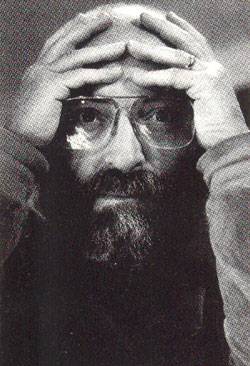All of us grow up in particular realities - a home, family, a clan, a small town, a neighborhood. Depending upon how we're brought up, we are either deeply aware of the particular reading of reality into which we are born, or we are peripherally aware of it.
neighborhood. Depending upon how we're brought up, we are either deeply aware of the particular reading of reality into which we are born, or we are peripherally aware of it.
Every man who has shown the world the way to beauty, to true culture, has been a rebel, a 'universal' without patriotism, without home, who has found his people everywhere.
Come, let us have some tea and continue to talk about happy things.
I get up around 6:30. I work from about 8:00 to 1:00, take a break for lunch, work again until about 5:00, and then go for a long walk and have dinner. Then, if my wife and I have no previous plans, we decide what to do for the evening.
Two hundred or more years ago most people on the planet were never aware of any reality other than the one into which they were brought up.
But today we become aware of other readings of the human experience very quickly because of the media and the speed with which people travel the planet.
It is impossible to fuse totally with a culture for which you feel a measure of antagonism.
Well, one hopes that if you're really related to the core of your particular culture, you have profound commitments to it, and that you are aware of how much you can strain it before you do violence to its essential nature.
As a species we are always hungry for new knowledge.
I think that to a very great extent we are partners with the divine in this enterprise called history. That is an ongoing relationship, and there is absolutely no guarantee that things will automatically work out to our best advantage.
In other words, Judaism is not Calvinism.
It is inconceivable to me that a million or three million or half a million human beings will think and feel precisely the same way on any single subject.
A non-fiction writer pretty much has the shape of the figure in front of him or her and goes about refining it. A work of non-fiction is not as difficult to write as a work of fiction, but it's not as satisfying in the end.
I'm constantly revising. Once the book is written and typed, I go through the entire draft again.
I don't work on my Sabbath. I write five-and-a-half or six days a week.